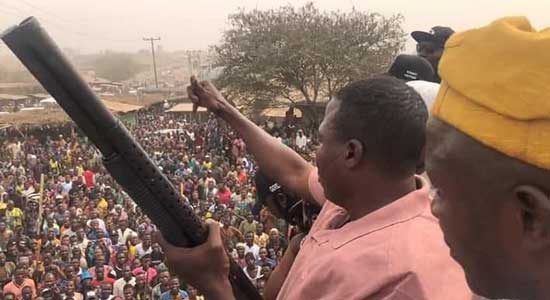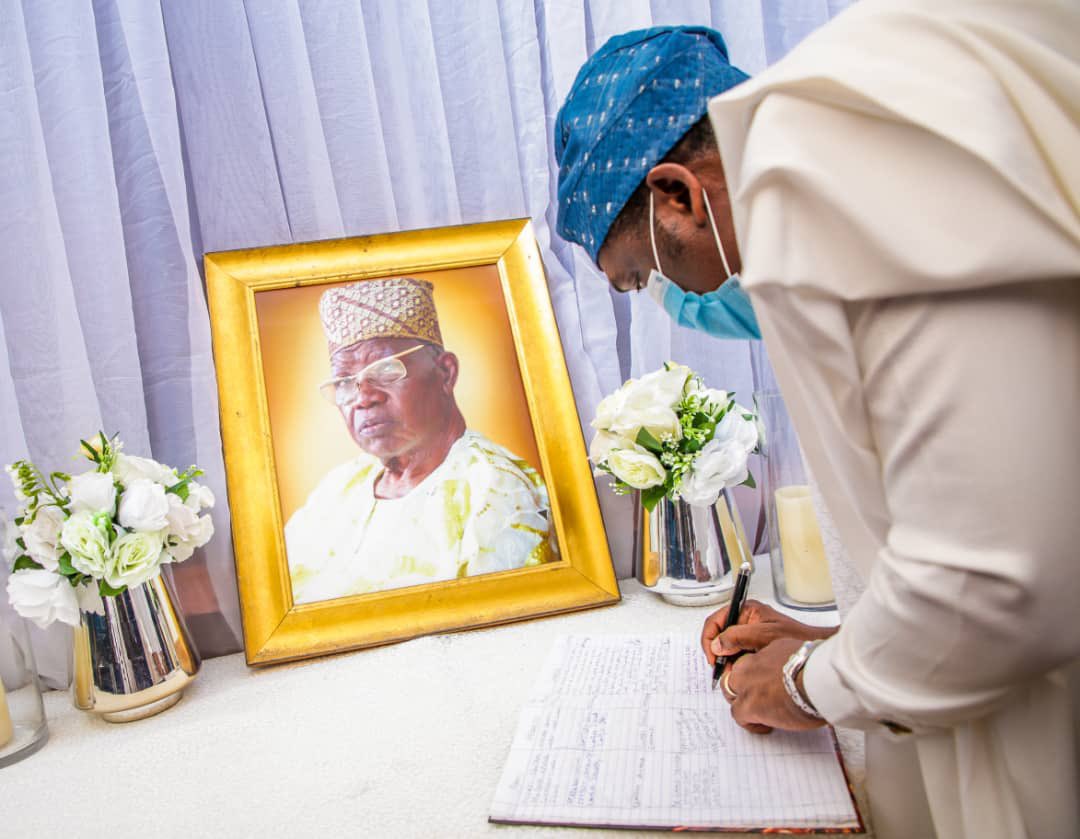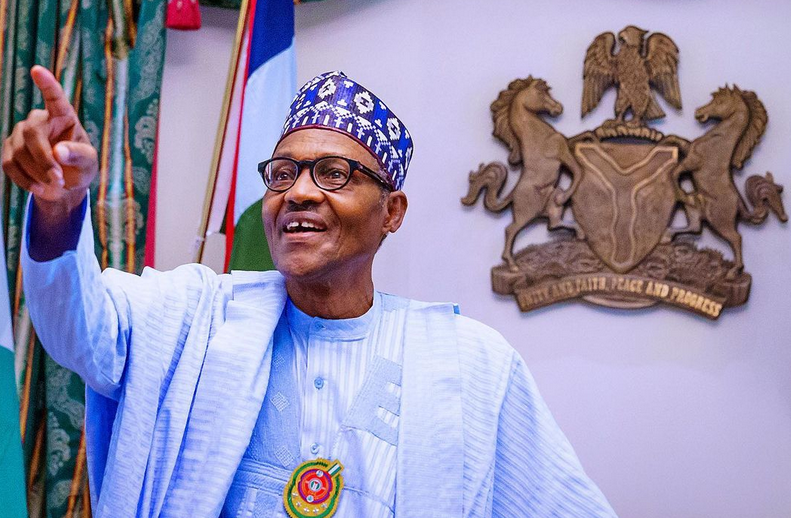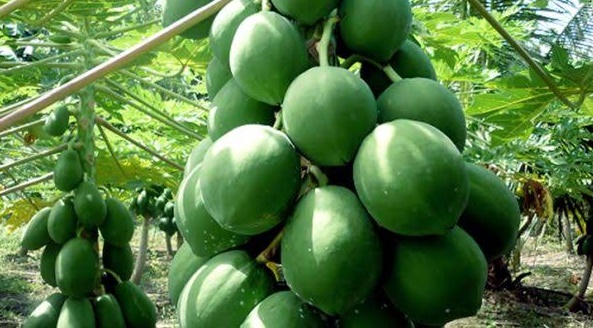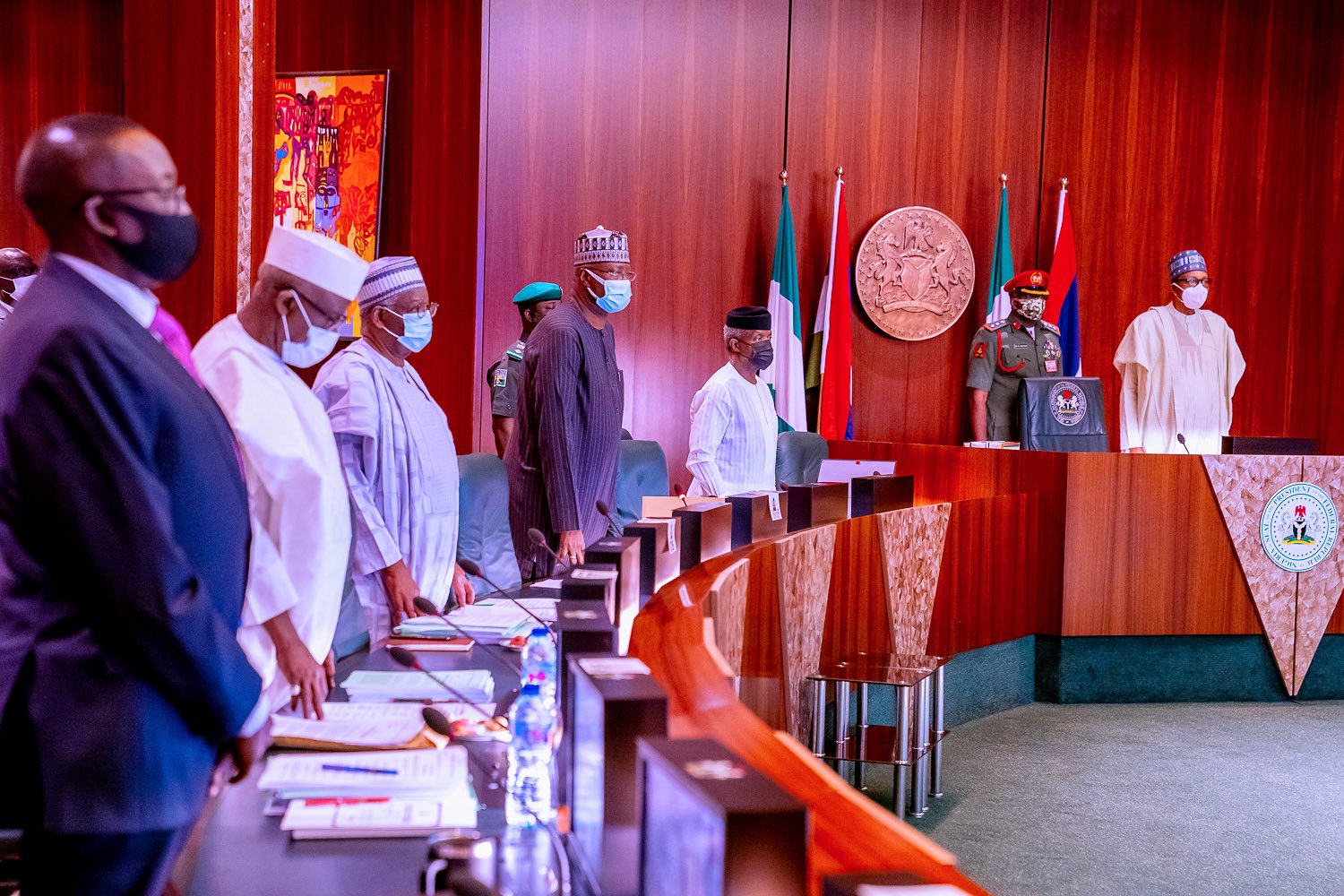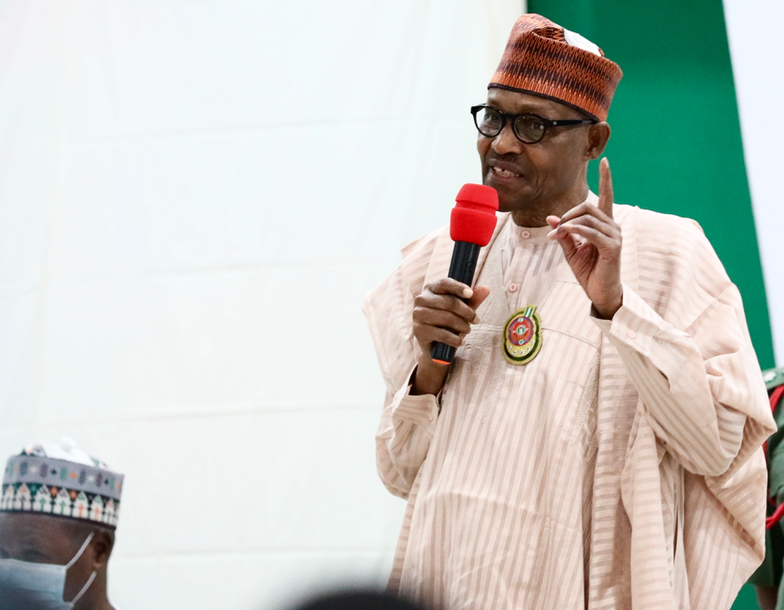‘Clearly, they were Fulani, given their physiognomy. Aside this, they also mentioned this themselves while hinting at tribes they dearly dislike. When I tried connecting on the instance of the language they spoke, it got them angry and they tried establishing if I could speak Hausa or not. For the leaders of the group, I am certain they are Fulani, albeit from Niger Republic. A few incidents pointed clearly to this, aside their boast of similar kidnapping exploits in Mali and other locations in the West African coast… There were seven of them. I could readily account for five of them on the basis of what they did. There were however two others that I knew were present but seldom got involved with us. One of them was their cook, four of them had guns with them and of these four, two of them were responsible for giving directions. There were times we walked for hours during the daytime and sometimes at night. They had people who sent call credit to them. Someone else was responsible for supplying cigarettes, another for occasional food supplies and there was someone changing their currency into dollars.
That is the much I could tell from their conversations…. Ekiti has a perfect cover for kidnapping given the thick rain forest vegetation in the state… The impression one gets is that the government is not concerned. It was a pretty hopeless situation. All official channels explored were futile. Till today, no one from the state or any of the security apparatus has debriefed me to get information that can ensure the perpetrators are caught. The forest is a resource and it needs to be branded as one. What the kidnappers have done is to harness the resources since the government won’t do that. The streams, wild fruits, terrains, etc have been thoroughly mapped by these reprobates for use. It is the same thing that happened to Sambisa forest. If those forests were in active use and deployed for sub-national use involving research, forest conservation, etc, the kidnappers won’t find it a convenient spot to use.
The above is the voice of Sola Fagorusi, a young chap I met through his writings on technology on the pages of Punch Newspapers and whom I later related with and engaged briefly for a training job. He gave the interview of his 21 days ordeal in the hands of kidnappers who hijacked him in Ekiti State. He mentioned how his car was stopped with bullets and how he and his passenger, returning from a wedding, are extremely lucky to have been alive. He also said he and 3 other victims were beaten mercilessly twice daily until they were released – ransom having been paid.
Almost every Nigerian knows someone who has been kidnapped and so this issue qualifies for our own pandemic. More people may have died under this trauma and tragedy than have died since COVID-19 moonlighted in Nigeria. Therefore, something more than a state of emergency is needed on this reprehensible criminal practice which is almost becoming like part of the culture all over Nigeria.
Advertisement
I’ve always been a bit centrist, calling for caution before weighing down on any side. I have always called attention to the fact that criminals may want to blame all their activities on Fulani cattle herders, and that remains a fact. Another fact is that we are not dealing with cattle herders here at all. In ALL of the accounts I have heard, kidnappers care nothing about cows. You cannot herd cows and traumatize ‘kidnapees’ at the same time. So, I believe enough time has elapsed, and enough experience has been garnered by us, to begin to boil down the problem properly for what it is. We can now conclude that yes, many of these kidnappings are by people of Fulani stock. They are the ones who understand the terrain in the bushes (in fact they are called Kings of the Bushes). They are the ones bold enough to face up to the vagaries of the jungles. Other kidnappers exist in our urban areas, but like the famous Evans, they don’t trek for kilometres and hours in the jungle. Those ones often keep their quarry in town. It seems like we could also conclude that many of these kidnappers are from outside Nigeria. They could be collaborating with their kin here. I use the word ‘many’ here deliberately.
So it is a pity that some of our Fulani friends feel bad when we call this for what it is. We should read Sola’s traumatized first-hand account again. He says they boasted of similar exploits as far as Mali. They are highly organized. They change their money into dollars. They understand our forests like the back of their hands. This is a shame to all of us and to our security agencies. How can foreigners understand our country’s terrain better than us? How can boys from northern Nigeria even understand the terrain better than people in the South? How can a group of boys, map our country better than us? It could only be because we are distracted and do not know the value of what we have. And we are not learning. As I write, nobody from the security services has contacted Sola, who came out of the 21 days ordeal with a sprained arm – as a result of being jacked for long periods of time. His car’s brain box received one of the bullets aimed at them. These kidnappers are deadly and merciless. But instead of a honest approach towards reclaiming our country, we are busy fighting a tribal war, while our government officials and security apparatchik have abandoned road travel because they cannot protect even themselves. What a pity.
THE IGBOHO PHENOMENON
Advertisement
In comes Sunday Adeyemo Igboho. Call him a political thug, a miscreant, an illiterate, a jobber, an opposition member or Area Boy. It doesn’t really matter. I will receive all of the insults on his behalf. And I will also humbly apologize on his behalf for his excesses, including the insult to the Ooni and other Obas down the South West whom he accused of being slaves to money and to Fulanis. I also apologize on his behalf for the threats to some Obas and elites. Yorubas say ‘Omoburuku lojo tie’, meaning that even the black sheep of a family does have his own uses especially when someone needs to defend the family from the black sheep of other families. Sunday Igboho is not particularly our black sheep in Yoruba land but a patriot who is responding very bravely to a situation in the way he knows best. Too many of us can only ‘blow grammar’ and analyze. However, at these times, what is most required is to step forward and be brave, and to face a problem squarely. For indeed we have a problem; a major one. Igboho is not Nnamdi Kanu’s equivalent. Kanu ran away and left his people in harm’s way more than once. Kanu is fighting for a secession in which he hopes to be king. Igboho does not care about things like that from all I have seen. He leads from the front, and has not expressed any political ambition at least for now. In fact, he demurs anytime someone intends to promote him more than the estate he finds himself. He is a true son of Yorubaland. If the kidnappers here identified are black sheep of their own families, those families should rein them in. However, we have begun to see Sheikhs and governors subtly or openly justifying the ‘agitations’ of bandits. Between the bandits who kill poor villagers mercilessly in the north, and these ones who show up in the south, do they not have the entire Nigeria in a vice grip? Do we still have a President or he no longer cares? Are we expected to be sleeping through this? This is no longer the time to be nice. In fact, this fight is on behalf of every law-abiding Nigerian who has a right to peaceful and peaceable existence. Enough already! We must ensure this country turns the corner and returns to some level of sanity. How can we keep living in fear of our own shadows?
LARGER POLICY ISSUES AND CONSIDERATIONS
I intend to consider some connected and cogent issues around what is going on, apart from the fact that some non-state actors have thoroughly mapped our forests, who may be foreigners, and that the entire country is enveloped and cornered by blood-sucking criminals. I call these ‘larger issues’ because of the implications that they portend for how these problems will be solved. These are some of the real policy issues that government must immediately engage with:
1. AUTOCHTONY – This is how the right of abode is described when a people have been living in a place for long. In the case of the Seriki Fulani of Igangan whose house was unfortunately burnt down, alongside other property, the issue is whether the right guaranteed for any Nigerian to be able to live anywhere within Nigeria also commands that one can grab any land for free and start living there. Nigeria is not inexperienced with the matter of autochtony. Jos North used to boil because of that. The issue then was whether Berom people had a right to tell Fulani people who settled in Jos North centuries ago, that that wasn’t their fatherland. Also in the Ife-Modakeke war, the problem was whether the Modakekes – whom the Ife people were said to have granted a small piece of land centuries ago in exchange for assistance to wage wars against their enemies – had any continued right to such lands. Some of these instances saw the question being settled at the cost of thousands of dried skulls. Others haven’t quite been settled at all. International conventions have a standard that any people who have lived in a place for 200 years could be said to be from that place where they live. The problem however, is whether in these digital times, people should still be forming camps and settlements randomly and with disregard all over the place. There is no more free land anywhere; even the Sahara Desert is fully mapped. Especially in the south of Nigeria, the space is fairly constricted. So, if people simply stroll in and form settlements and villages, they are potentially calling for trouble. If we had a government, there will be a position on this. However, our president is a well-known tribalist, parochialist and nepotist, whose prejudice is of the highest standard.
Advertisement
2. WHO OWNS THE FOREST? It was very interesting, if not shocking, to hear Bala Mohammed, Bauchi State governor and former journalist say that the forests of Nigeria belongs to nobody. Every state has its territory and by the Land Use Act 1979, all lands but a few strategic ones are vested in the state governor. I believe that elite Fulanis are being most unfair in the resolution of this problem and are exacerbating an already tense situation. Before the Land Use Act, families owned all the lands but that became very contentious. Till date, families still assert their rights in some places. No land is free, especially down south where only 25% of Nigeria’s land mass is. If Bala does not know any better, what do we expect of a poor herder? This ‘freedom’ with which lands have been occupied and claimed is a recipe for disaster.
3. LAND-CLEARING FOR AGRICULTURE – Of recent I have been engaging with some friends who are excited by a new push for land-clearing in Nigeria. They say that Nigeria’s true Agric revolution is around the corner because arrangements are being made to clear vast amounts of land and truly expand the space for our agriculture. One of them says we should try put the Central Bank of Nigeria under pressure for a global fund for land-clearing, as this is the first stage of the agric value-chain and an area that Nigeria has largely neglected. One account says that we have utilized only 3million out of 87million hectares of our arable land. Another puts it at 30million. Now, what this means is that the era for tardiness is over. We need every piece of land. Ancient practices where people move randomly and without regard for the law should be banished already. If we were a serious country we would have – like South Africa – standardized our agriculture by now. South Africa farms over 80% of their land. That is a serious country. Well, some of us vied for leadership in this country and were rejected for tired old men who prefer that we keep roiling in cheap confusion. What a pity.
4. FARMING VERSUS HERDING – When Adamu Garba, presidential aspirant in 2019, stated that cow herding is more profitable than bitcoin, some youths mocked him. It is only because we are feisty and ignorant for nothing, for Adamu has a point. Bitcoin could grow in leaps, but often crashes in cascades. Cattle ownership does not work like that. It is stable, profitable business. Cattle prices have risen in Nigeria, perhaps faster than the inflation rate. What one could buy for N50,000 a decade and half ago, now sells for N300,000. Cattle keeps reproducing at a rate of probably 10%-20% yearly, and those who own them, especially under the current system where they roam about eating free grass – and occasionally farmers’ crops – spend next to nothing on them. The aristocrats own most of the cattle, and often pay the herders from the calves borne by the cattle. The herders, I understand, have been in that business generationally. So, the elites basically sit back and watch their stocks rise! No stock exchange in the world guarantees such stability and rate of return! Now, compare this with the life of a farmer who plants and waits for months for his products to mature, all the while toiling and tilling and weeding and tending and spraying and watering and watching and protecting. Then at harvest season, he and his friends rush to the market at the same time, thus creating a glut and a crash in prices. We expect a farmer to make all the money he can in harvest season, and somehow be able to manage and spread his money till the next harvest season, taking care of his family expenses, and being able to replant, re-tend, re-weed and re-spray, until the next harvest season! Not even we who attended universities and studied finance and planning will find that easy to do. So, given this scenario, all the youths run away from the villages and become Okada riders in the cities. No one wants to be a farmer anymore having seen their parents struggle and age prematurely. Even the ones who have been encouraged into agric have found that it is easier said than done. Poultry and fish farmers are groaning all over the nation. You will find that after an initial enthusiasm we stop hearing about those kid wonders who went into agric with their Harvard degrees. When cattle devastates farms, the herders off-handedly offer to pay tokens, oftentimes N100,000. This looks substantial to most rural farmers. For the herder or his master, who apparently understand finance better, who only sells a few of his stock and understands how to maintain balance, N100,000 is peanuts. A very simple evidence will do; see the Baale (Oba) of Igangan how emaciated and poor he looks, almost at his scrap value. Then see how robust and strong the Seriki looks. While the Seriki laments about how many cars were burnt in his home, and that he had N1.1million under his bed, I’m not sure the Baale had more than a bicycle. Go figure. The usual boastfulness of the Yorubas is out in the open. We say we understand English, but I have been saying we are perhaps the poorest region in this country. See the Igangan of a town; all rusty and broken, with poverty walking the unplanned alleyways. All we do is point fingers elsewhere. Hopefully Igboho’s recent actions will catalyse a rethink.
5. PERVESE INCENTIVE – Piggybacking on point 4 above, is what I recognized as perverse incentive in the cattle-owning business. About 5-years ago, at Chido Onumah’s book launch (We are all Biafrans), at the Yaradua Centre in Abuja, Alhaji Atiku Abubakar being the Chairman had explained to us the economics of cattle ownership. He said a self-respecting Fulani man knows that he is not judged at death by the number of houses he owns, but by the heads of cattle. He said he owned 1,000 or 10,000 I cannot remember exactly and that some were rustled. He went as far as Congo Republic to retrieve them. I think it was a rare moment of honesty for I have not heard any prominent Fulani man admit to this clear sociological phenomenon before or since then. Many are busy fighting wars with angry southerners on social media while offering no truths. Recall that we have agreed that kidnappers are NOT herders even if many kidnappers are Fulanis from everywhere. Yes, we are spooked by AK-47 wielding herders who sometimes moonlight as kidnappers BUT there is a special breed of Fulanis from wherever, who no longer care about cows and are fully into the kidnapping business. The fluidity of the cattle herding business may have given a certain stock of Fulanis the confidence to embark on these dastardly acts intra-continentally after all we are talking of Mali, DR Congo and whatnot in one article here. Anyway, I saw what we call in Economics a perverse incentive in Atiku’s statement. This is because cattle is not held by a Fulani person, for the profit accruable from sale. Rather, they are being bred for the ego and the culture and the honour and the prestige and the reputation and the respect. The larger the herd, the more accomplished a Fulani person is. As the population of Nigeria grows, so also does the population of aristocrat and town Fulanis, who must own herds of cattle for the reasons adduced above. This is the reason why Abuja is now the Federal Cattle Territory, because the ones owned by rich men who would rather they remained within Abuja, are growing daily. The population of cows in Nigeria is anything between 30million and 40million. Multiplied at an average price of N200,000, this is a N6 Trillion to N8 Trillion capital business. Could be more. At a growth rate of say 5% annually even after old stock are sold, this value will have increased exponentially to double the figures in a few years. Where are those who thought Adamu Garba was talking nonsense? What is the value of all the farm products that our smallholder farmers own in the south of Nigeria? Also note that majority of our food comes from up north where they own 75% of the land mass. We keep mocking them at our own risk. These are strategists.
Advertisement
6. RELIGION AS DIFFERENTIATOR – A friend, Majeed Dahiru pointed out to us in a recent discussion on the PremiumTimes WhatsApp group that the issue of residency versus indigeneship had since been settled in the core north. I had pushed that one of the solutions to these problems was to institutionalise the idea of “state of residence” in Nigeria and forget this indigeneship matter. When Majeed mentioned what should have been obvious to all, I remember reading from Alhaji Tanko Yakasai’s autobiography that he is a Jukun man, from Taraba State. I also know that the Abachas are Kanuris. These are just two prominent families already fully absorbed into Kano. So also are many Yorubas and others from different parts of Nigeria. I however noticed that religion is a differentiator. A Christian family who lives in the north may not be as fully integrated as a Muslim family. Or put differently, maybe such families continue to see themselves as outsiders – even northern Christians complain seriously of oppression and neglect. This also reminds me that someone insisted recently that a southern Muslim presidential candidate cannot pick a northern Christian as his Vice. I think religion is a knotty issue that only the most open-minded and highly cerebral president can help defuse.
7. RETURNING THE FUNCTIONS OF TRADITIONAL RULERS – Before the white man got here, we governed ourselves under monarchical systems in the main. At least some sort of leaders existed who held their territories together. The clash between these traditional systems and what the colonialists brought was obvious from the beginning. In some instances, they worked through the structures they met on the ground, and at other times, they disrupted the structures. Our traditional rulers were brought under local government chairmen – and of late, mere administrators appointed by the governors. They have all lost value. Part of the trajectory to this point will include the experience that Obafemi Awolowo had with some Yoruba Obas when he had to assert himself as the recognized authority. Why is this important in this discussion? When traditional rulers were powerful, territories were sacred. And you cannot have two traditional rulers in one town or village. Today, we have multiple. Not only the Seriki Fulanis that are now in contention, but we have Oba Yoruba of Kano, of Jos, of Sokoto and elsewhere. Even Oba Yoruba of London. In Yoruba traditional culture, all these Obas are jokers. An Oba is something, because he owns the land. Whereas land has been reverted to the State Government since the Land Use Act of 1979, still the traditional reverence of our traditional leaders remain, but for the watering down that we have seen with money-miss-roads coming to make themselves traditional rulers of ‘their own people’ in other people’s lands. All the three major, arrogant tribes of Nigeria now practice this abomination. The Igbos got particularly good at having the Eze Ndigbos of everywhere. In my ancestral town, Akure, this practice almost caused a tribal war a few years back when Deji Aladetoyinbo became alarmed that some guy had built a palace and appointed his own titled chiefs, asking that all Igbos must see him as their traditional ruler and not anyone else.
Advertisement
These are just the few policy issues around the metastasizing problem of herders and kidnappers. The whole of Nigeria has always been friendly with cattle owners and herders from time immemorial, but something different emerged. It is unfortunate that the government keep burying its head in the sand while this cancer grows. We have not seen any action whatsoever on the part of government, to have a clean sweep and clear any miscreant from our land. This is about territorial integrity and if the federal and state governments will not do this basic job, Sunday Igboho and many of his kind are ready for this sacrificial but routinely administrative task. While the sweep of our territory is going on, we on the intellectual front will position these hard issues in the hope that they get dealt with. What more can I say?
Advertisement
Views expressed by contributors are strictly personal and not of TheCable.
Add a comment

